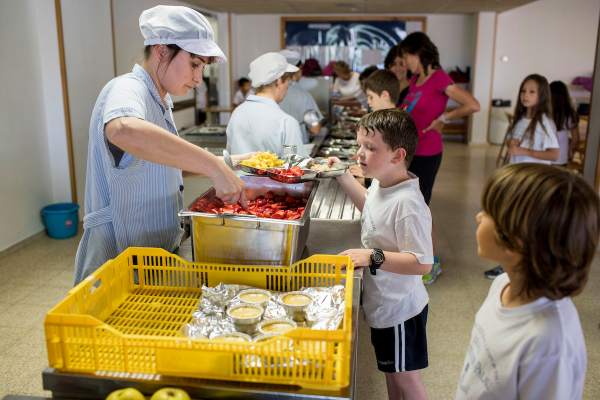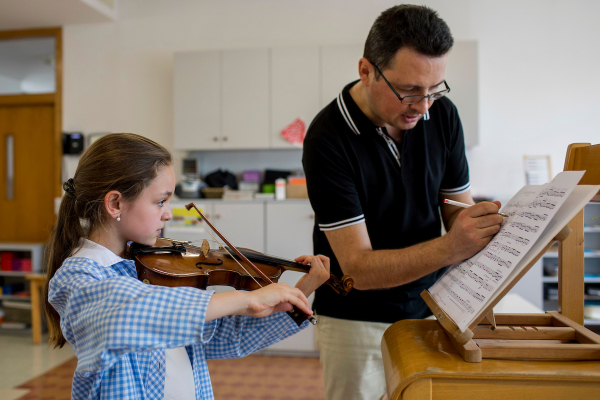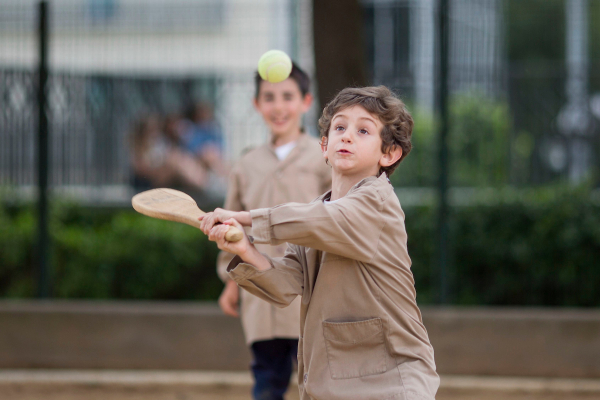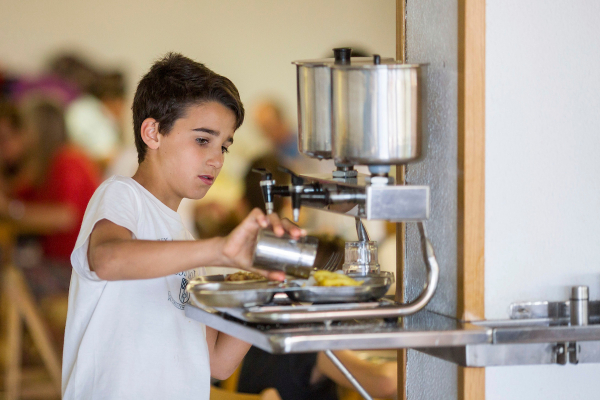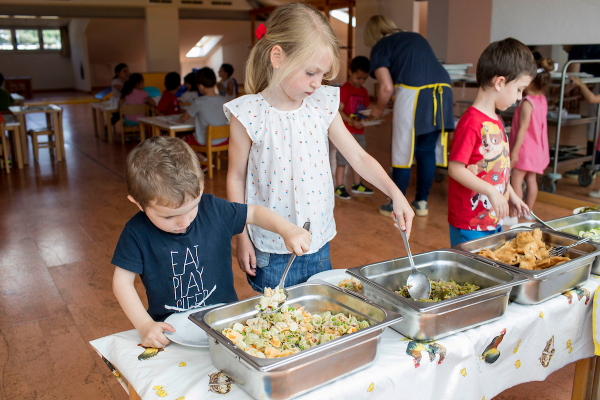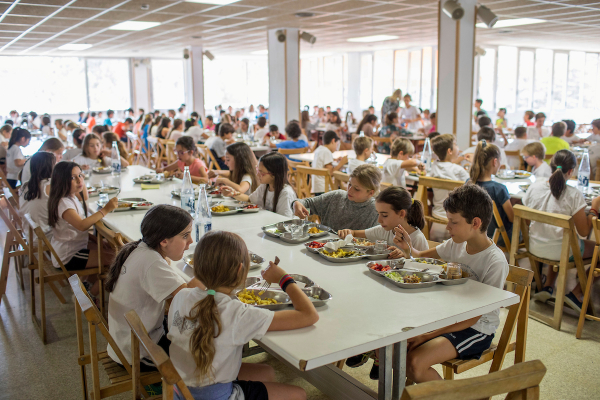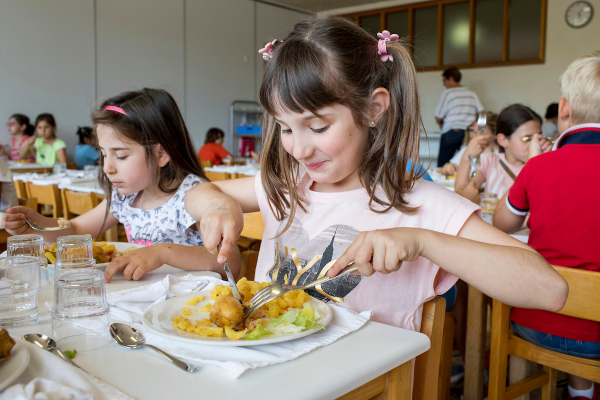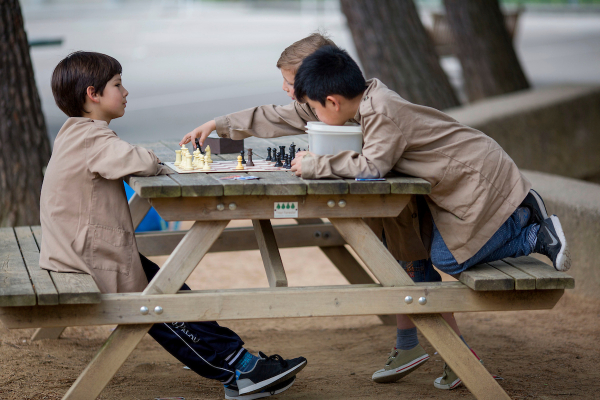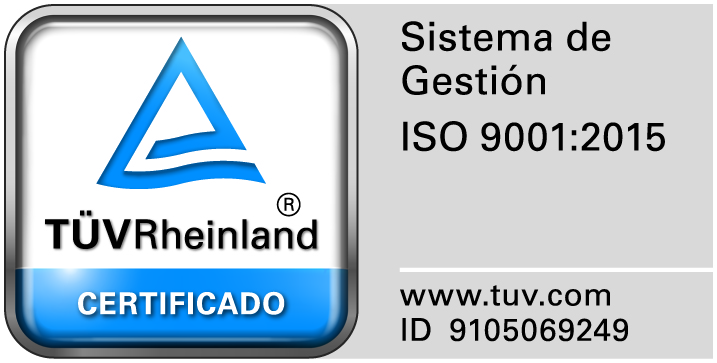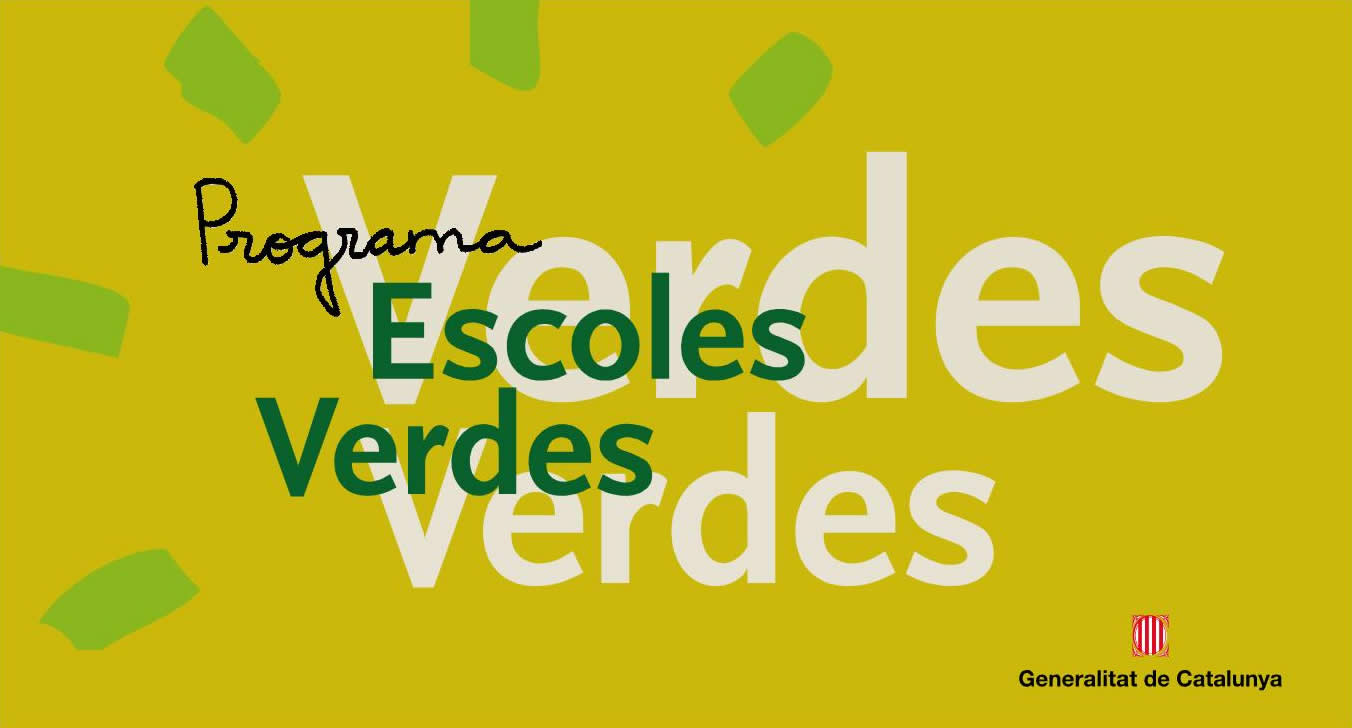Lunch Service and Lunchtime Activities
The dining room is considered to be an educational space
Both the time spent in the dining room and the dining room itself are very important during the educational period of the student, since it allows social interaction to be improved and for many more educational opportunities. The consideration of the dining room as an educational space allows us to understand and work on everything that takes place during mealtimes, such as the teaching of good table manners or eating habits.
In Infant Education, from the moment children begin to walk, various aspects of practical life skills and personal autonomy are addressed such as laying and clearing the table, cleaning their space or serving themselves. During Primary Education, we also work on good table manners and the social aspect of eating. In addition, students are involved in the management of the dining room and in the nutritional content. In Secondary Education, the students collaborate in monitoring and meeting the obligations of fellow-pupils, and they work on and consolidate their learning regarding food and nutrition.
The after-lunch period is supplemented with various extracurricular activities. These depend on the educational stage, such as the violin, German language and physical education, working in the kitchen garden and farm, sports and various traditional games, participatory tasks in Study and work occupations. In the case of Infant Education, they have an afternoon nap. All the activities are guided by the teaching team for each stage.
The school's dining service and the fact that students do not have to travel home, means they can take advantage of this time to develop interpersonal relationships and participate in the wide range of voluntary activities that are programmed after lunch, such as theatre, music, artistic or sporting activities, among others.
In addition, the Montessori Palau Girona school considers the dining room to be an educational space since, for all stages, it is the same teachers and tutors who take care of planning educational activities during lunchtime. This allows everything that takes place during mealtimes to be understood and worked upon, such as the teaching of good table manners or eating habits. Putting healthy eating into practice every day allows them to embrace the qualities of the healthy food and for it to become a natural part of their development and education.
In the Infant Education stage, from the moment they begin to walk, time spent in the dining room is taken advantage of in order to work on various aspects of practical life skills, such as laying and clearing the table or cleaning up their space and thus developing personal autonomy, perfecting movement and all that arises from emotional development. In addition, the education of responsibility and sensitivity towards the environment is encouraged, starting from the recycling of waste.
During Primary Education, we also work on good table manners and the social aspect of eating together and the students play a role in the management of the dining room and regarding nutritional content.
In Secondary Education, students collaborate in monitoring and fulfilling the obligations of their classmates and they work on and consolidate their learning around aspects relating to food and nutrition.

